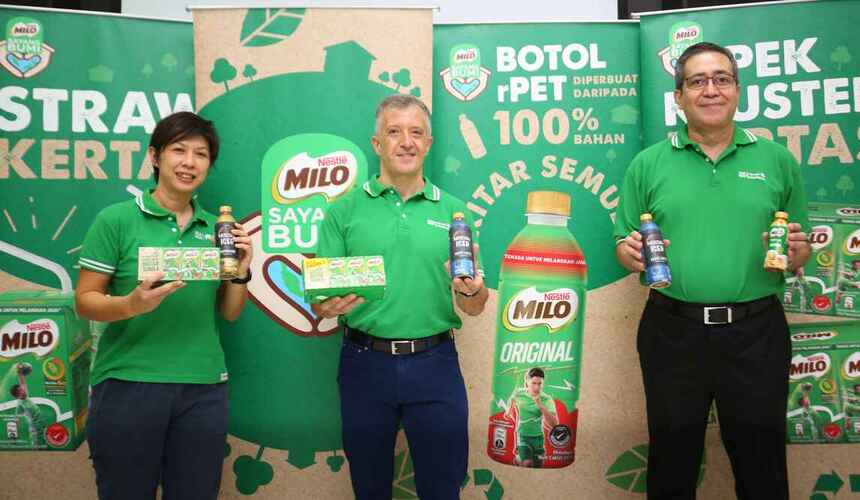
Nestle Malaysia is accelerating its efforts to tackle plastic waste by being the first company in Malaysia to use high-quality recycled plastic resin (rPET) for its Ready-to-Drink (RTD) products in plastic bottles format.
The company said to-date, 90% of its packaging materials are already designed for recycling, in line with the company’s pledge to reduce the use of virgin plastics by at least one-third and make 100% of its packaging recyclable and reusable by 2025 globally, and also in Malaysia.
Nestle (Malaysia) Bhd chief executive officer Juan Aranols, said plastic waste remains a global issue and the company is working hard to deliver environmental innovative solutions.
“By transitioning to 100% rPET bottles and more paper-based packaging solutions, we reduce the use of virgin plastic and improve our carbon dioxide footprint.
“This reflects our company’s ongoing commitment to shape a waste-free future,” he said.
The company has also, via its MILO Sayang Bumi” platform launched last year, eliminated the single-use plastic shrink wrap for its MILO UHT 125ml products, replacing it with 100% sustainably sourced recyclable paper, and is working to extend the innovation to the rest of the UHT range.
“We aspire to make MILO the first plastic and carbon neutral brand in Malaysia by 2025. This also supports the Malaysia Plastics Sustainability Roadmap 2030 which aims to address plastic waste pollution and incentivise circularity in the use of plastics to mitigate environmental impact.
“We hope that through these initiatives we can contribute to raising awareness and a change in the behaviour of the general public to make the planet a better place for all. Ultimately, we can only achieve a greener future through collective efforts,” added Aranols.







